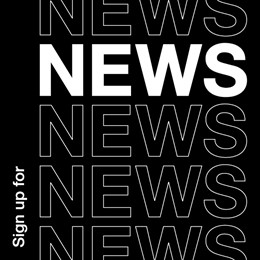What do you do when your brand’s in the toilet?

Andrew Milton, rbl Brand Agency’s managing director and former head of brand and marketing at Severn Trent, discusses the difficulties facing Thames Water and why brand had ought to be on its agenda.
Brand is one your biggest assets, but what happens when things go wrong? Many brands at some point will find themselves some sort of crisis point. It might be temporary, it might be, as in the case of Thames Water, existential.
There have been some great examples of where creativity and bravery have combined to ride to the rescue. KFC’s response to running out of chicken with the slightly cheeky, but humble ‘FCK’ response is a great example. It also created an unexpected opportunity to remind people that they actually use fresh, not frozen chicken.
But what if your brand is in the ultimate ‘low interest’ sector? And what if your ‘customers’ have no choice about whether they use you or not? What if people ask whether you’re even a brand at all? And what if you’ve got yourself into such a mess that you’re at risk of being renationalised by the UK government?
That’s the challenge facing Thames Water.
It’s a perfect storm. Controversy over their business model and funding, boardroom malaise, regulatory investigation, a poorly delivered service and financial problems that have threatened their very existence. Surely they have far more important things to think about than brand?
Maybe, but there’s a strong case for brand being high up on the agenda of whoever ends up in charge.
Thames Water are currently suffering from their brand being damaged but not managed. So here’s why their brand should be in the mix.
- Every organisation has a brand, it’s what people say about you when you’re not in the room. Just because you don’t have a defined brand narrative or something you think of as a brand strategy doesn’t mean you don’t have a brand. It just means that you’re not managing it.
- Your brand strategy should be the external facing articulation of your business strategy. If your business is in crisis it’s not enough to be focussed on the internals. Your audiences will be engaging in the dialogue whether you like it or not, so being able to communicate authentic first principles, founded on beliefs that underpin you becomes even more essential.
- Whenever you’re asking customers to come with you – if you need them to change how they behave to help you or you need them to swallow inevitable price rises – your brand needs to provide the context for what’s happening. Why should your customers accept this if it’s not part of some greater story that shows how you’re making their world better?
- The very process of a rebrand, if done properly, starts with active and deep listening. It’s the sort of self-examination and vulnerability we need if we’re going to develop an empathetic customer world view.
- The process of a rebrand can be highly galvanising for an organisation internally. It helps you reset your north star and get everyone moving in the same direction. It also reminds you that it’s not all bad. Whilst Thames Water has its problems, there will be millions of people in its region who can enjoy their day thanks to the delivery of the world’s most essential products. That’s why the Severn Trent brand shifted in 2018 to celebrate the product and remind people internally and externally of the real impact that it had on their lives.
- Your brand should help move you forward and be a tangible asset that helps you achieve your goals. Whilst water companies don’t ‘compete’ in a traditional sense they are part of a hugely complex and regulated regime that rewards success and punishes failure. Some of those targets are purely operational. Some of them are more nuanced and influenced by how customers perceive the service they receive – and that’s where imbuing your brand with real meaning results in customers both understanding and valuing what you’re trying to achieve.
Whilst the visible output for a brand is often a new logo or visual identity, that should always be the signal of something deeper. It should show that you’ve been through a time of self-appraisal and reflection, that you’ve engaged with and listened to your different audiences and that now you’re asking people to reappraise you, what you do and what you’re for. It doesn’t mean you need to be perfect, but it does mean a serious and authentic new direction of travel.
That sounds like something that Thames Water should be prioritising right now.













